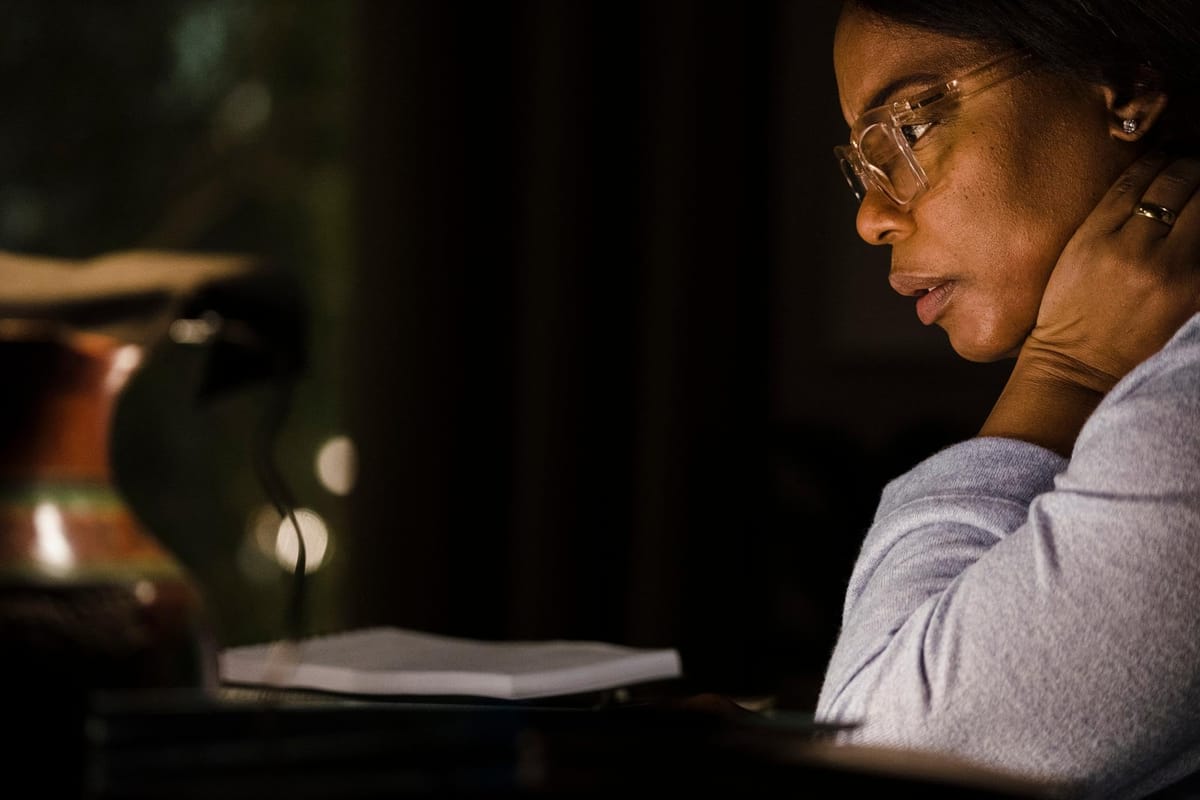Origin

The thing I find most fascinating about Regal’s Mystery Movie is the gamble. Most people go to the theater only to see movies they want to see, contrasting with people like me who see everything they can. So what do you do if you go to the Mystery Movie and aren’t interested in the movie they pick? Or you start watching and think it’s bad? Sure, it’s cheaper than a normal movie, so if you leave you’re not out much money. But you’ve still sunk the time into getting to the theater, sitting through the pre-show and ads and trailers and some of the film. Maybe you’re with people who don’t wanna bail. My guess is it’s more likely you’ll just stick it out, for better or for worse.
Which is part of why I’m so delighted by the selection of Origin.
I don’t know how how they pick the movies, but I’d imagine few distributors are in favor of it, so it’s hard to give Regal too much credit. Yet it’s likely true many of the attendees had no intention of ever watching it, meaning it had a chance to make its point to them. And its point isn’t a simple, easy to digest one, making it all the more powerful. The audience might not have been mentally ready for it, but they quickly had to become ready.
Origin is director Ava DuVernay’s adaptation of Isabel Wilkerson’s nonfiction book Caste: The Origin of Our Discontents. But DuVernay decided to center the author in her movie, depicting the journey of Isabel Wilkerson (as portrayed by Aunjanue Ellis-Taylor) as she constructs her arguments and compiles them into a book. After initially rejecting the invitation to write about the murder of Trayvon Martin, she dives into a bigger project spinning off of that as a distraction from the sudden death of her husband Brett (Jon Bernthal). Despite so many talking about race as the foundational element of oppression, she seeks to construct a theory which unifies the subjugation of Blacks in the US, the slaughter of Jewish people (amongst others) in the Holocaust, and the dehumanization of the Dalits in India. Which she comes to in the age old idea of caste.
What makes this a bit of an awkward experience is that DuVernay is uninterested in showing our protagonist coming to that conclusion. Rather, that idea seems fully formed in Wilkerson’s head, and it’s just a matter of her finding concrete links between the experience of oppressed peoples in the US and elsewhere. Instead, the movie positions most people she interacts with as audience surrogates. They’re an excuse for Wikerson or some other figure (e.g. Dr. Suraj Yengde, playing himself) to very plainly state the implications of caste and why it’s a superior framework to racism, or to explain the connections between each country’s implementation of systemic discrimination. There are whole chunks of narration over re-enactments of historical events, such as the murder of Trayvon Martin, which play as if we’re being read excerpts from the book.
All of this makes it feel like the movie is straining against the constraints of a narrative framework. Even more so by the inclusion of a tragedy in Wilkerson’s life whose connection to the main thread isn’t particularly clear. These switches into the life of the author feel like distractions, robbing the main thrust of its power as we lose focus for a bit. As mentioned above, sometimes it provides a vehicle for further discussion, but it always feels a bit forced. I’m not certain why DuVernay didn’t just make a documentary: she’s no stranger to the genre, and it feels a lot more natural for a nonfiction book.
That being said, all the acting is pretty great, from Ellis-Taylor to Bernthal to Emily Yancy as her elderly mother to Niecy Nash as her cousin Marion. There are a bunch of recreations of historical events, some which are tied to the Holocaust or the experience of Dalits, but many tied to examples which illustrate the connections between the three societies. All of them incredibly visceral and powerful, from the opening staging of the murder of Trayvon Martin to the exclusion of young Al Bright from swimming in the Youngtown pool with his Little League teammates. The movie is absolutely gorgeously shot in 16mm, which gives it a full warmness and evokes the recent past, reminding us of our proximity to the disgusting horrors being discussed.
That this movie has such important things to say is part of my frustration with it. DuVernay wants to bring the conversation to the masses, much as 13th served (and still serves) as an excellent touchpoint for the existence of a modern form of slavery. And maybe Origin will still serve that purpose: we’ll see what the wide reaction is to it upon wide release this weekend. But I think the message gets a bit too buried under the layers of personal story to really land for most audiences. That being said, it’s still a fascinating document full of great ideas.